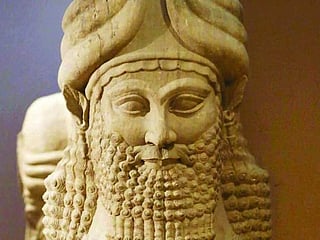Mustafa Al Kadhimi is the man in the middle
Iraqi Prime Minister has been quietly effective since coming to office

The recent brazen assassination attempt on the life of Iraqi Prime Minister Mustafa Al Kadhimi was shocking. The would-be assassins used three bomb-laden drones, navigated over the high security cordon that rings Baghdad’s Green Zone, and detonated the remote-controlled flying bombs over Al Kadhimi’s home.
The sheer audacity of the attackers underscores just how adaptive terrorists are when it comes to using any method at any time to pursue their aims, and the attack on the prime minister followed clashes triggered by recent election results.
The use of drones was pioneered by Daesh in 2016 during their bloody failed bid to establish a caliphate across must or Iraq and Syria, and it usually involved the adaptation of quadcopter drones, modified to drop a small explosive payload.
Baghdad’s Green Zone is likely the most secure and heavily protected district in Iraq. While security sources say there is drone-jamming software there, the security arrangements protecting Al Kadhimi include anti-drone rifles and fixed and portable jamming units.
Security analysists say that the drones were able to make it as far as his residence suggests that their flight paths were pre-programmed to avoid the jammers.
So why is Al Kadhimi such a threat? And why do elements in the country and beyond want him removed one way or another?
Certainly, Al Kadhimi would have been all too aware of the threat posed by Daesh and others as he served as the head of Iraq’s intelligence service from 2016 onwards, playing a central role in the military fight against the terrorists’ attempts to establish the caliphate.
He became prime minister 18 months ago, some six months after his predecessor Adel Abdul Mahdi was forced to resign following mass protests against the government, and he had support from both the US and Iran. If anything, since he came to power, he has sought to bridge those very obvious tensions between Washington and Tehran.
Born Mustafa Abdul-Latif in Baghdad in 1967, he belongs to the Al Gharib tribe, the family had moved from Al Shatrah town in Dhi Qar province to live in the capital in 1963. His father, Abdul-Latif Al Gharibawi, had political and partisan affiliations as he was a representative for the National Democratic Party in his hometown.
Rise of a political leader
Those affiliates would have been severely tested with the rise of Saddam Hussein’s Baath party and its seizure of power and subsequent establishment of an uncompromising regime under the Iraqi strongman. Al Kadhimi was known for opposing the regime but did not join any of the political parties. He is, however, married to the daughter of Mahdi Al Allaq, a leading member in the Islamic Dawa party led by former Prime Minister Nouri Al Maliki.
Al Kadhimi also holds a bachelor’s degree in law.
He left Iraq in 1985 for Iran, then Germany and the United Kingdom before he returned to Baghdad after the fall of Saddam’s regime in 2003.
After his return, he worked as the editor-in-chief of a weekly magazine – whose concessionaire is the current President Barham Salih – and he chose for himself the title of Al Kadhimi. He was also an executive director for the Iraqi Memory Foundation and contributed to documenting testimonies and collecting films on victims of the former regime.
He also ran the Humanitarian Dialogue Foundation between Baghdad and London - an independent organisation that seeks to bridge gaps between societies and cultures and establish dialogue as an alternative to violence in resolving crises.
His biography also says he worked as a columnist and managing editor of the Iraq section of the international Al-Monitor news website and his articles focused on devoting the spirit of social peace to the country. He has also published many books including The Iraq Question and The Reconciliation between the Past and the Future.
With that varied and slightly esoteric and overarching purview of Iraqi society, he would have been views as a surprising choice by former Prime Minister Haidar Al Abadi, who made him as the head of the National Intelligence Service in June 2016. By all accounts, much of his work there was acting as a political mediator between various Iraqi parties and interests.
Despite living in Europe and the UK for almost two decades, Al Kadhimi does not possess any citizenship other than Iraqi. He did, however, possess political asylum travel papers granted to him by the UK during his opposition to Saddam’s regime.
Those political mediation skills are also critical now with Iran-backed Iraqi paramilitary groups mostly opposing his premiership, harbouring suspicions because of his good relations with Washington.
His first trip abroad as Prime Minister was to Iran but, reflecting his balancing act, he has also been to the White House twice and visited both Saudi Arabia and the UAE as part of efforts to improve Iraqi relations with Gulf States.
He is also not without success, sealing an agreement in July to formally end the US combat mission in Iraq by the end of 2021 during a meeting with President Joe Biden at the White House. Under the agreement, US forces will stay in Iraq in an advisory role.
If all goes according to plan, the deal will end almost three decades of US actions and involvement against Baghdad going back to Saddam’s invasion of Kuwait. Within weeks of that White house visit, he hosted a Baghdad meeting that brought together officials from both Saudi Arabia and Iran.
That he was targeted is somewhat surprising – he has been acting as in a caretaker capacity since elections last month. Clearly though as that assassination attempt shows, Kadhimi is viewed as a threat lest he be again appointed to the role.






